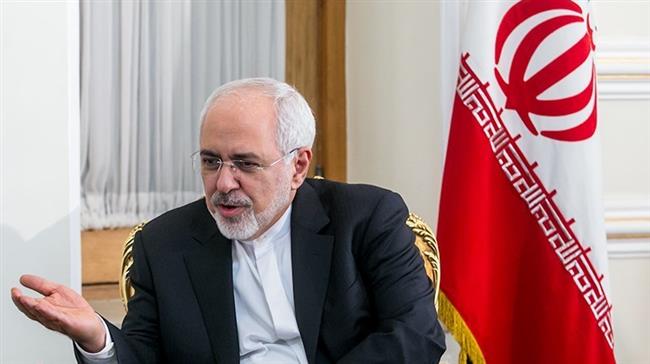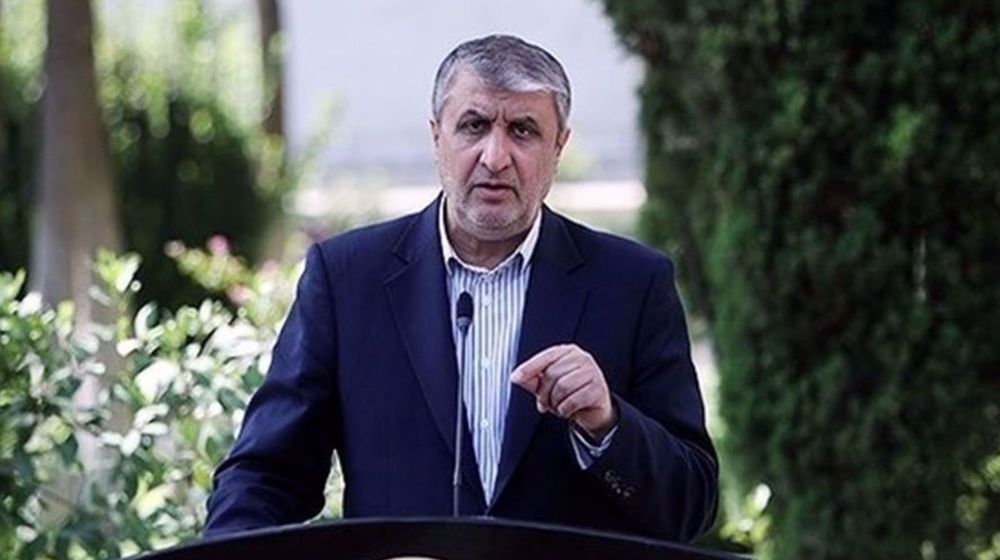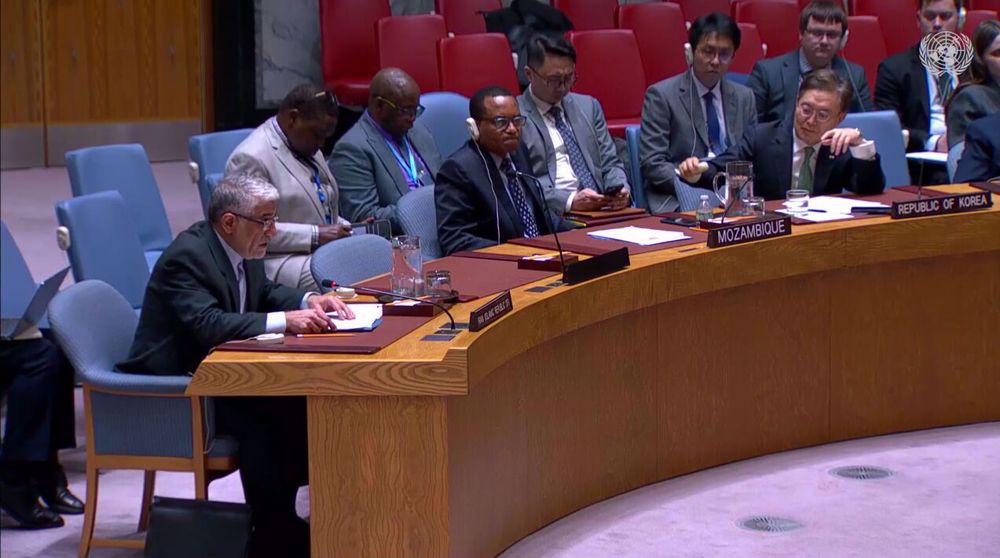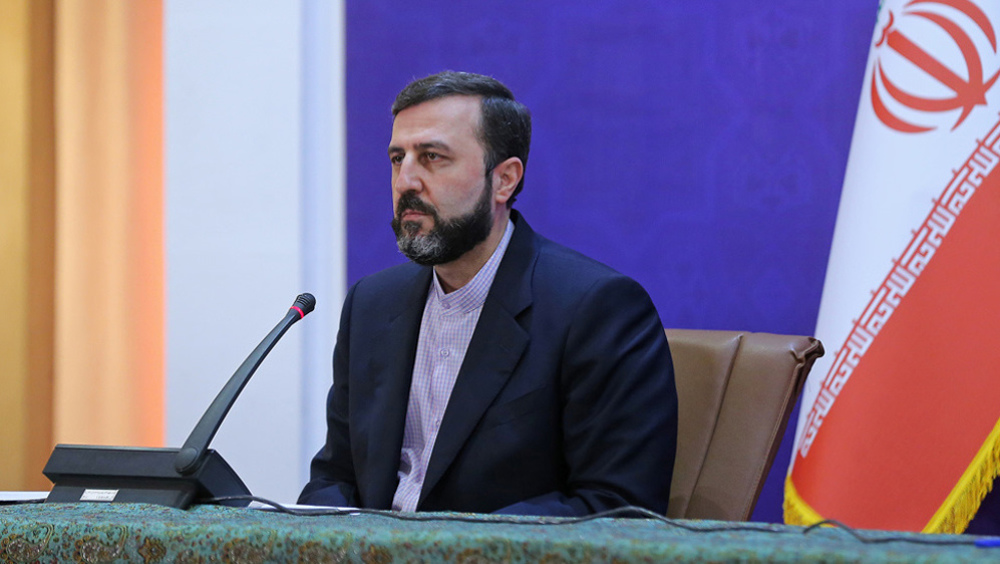Iran FM warns US against 'painful mistake' of quitting nuclear deal
Iranian Foreign Minister Mohammad Javad Zarif has warned the United States against the "painful mistake" of pulling out of the 2015 Iran nuclear agreement, officially known as the Joint Comprehensive Plan of Action (JCPOA).
"Considering what has been envisaged in the JCPOA in the field of research and development and the Islamic Republic of Iran's continued measures to develop its peaceful nuclear capability, if the US makes the mistake of exiting the JCPOA, it will definitely be a painful mistake for the Americans," Zarif told reporters on Friday upon his arrival in Tehran from the Kazakh capital of Astana.
Iran and the five permanent members of the United Nations Security Council – the US, France, Britain, Russia and China – plus Germany signed the nuclear agreement on July 14, 2015 and started implementing it on January 16, 2016.
Under the JCPOA, Iran undertook to put limits on its nuclear program in exchange for the removal of nuclear-related sanctions imposed against Tehran.
The Iranian foreign minister said US President Donald Trump has always sought "destroy the JCPOA," both before and after he took office in January 2017, adding that Washington has committed broad violations in the implementation of the nuclear accord.
Trump has repeatedly described the JCPOA, which was negotiated under his predecessor, Barack Obama, as “the worst and most one-sided transaction Washington has ever entered into,” a characterization he often used during his presidential campaign, and threatened to tear it up.
The US president said America's European allies must agree to tougher measures and new conditions until May 12, otherwise Washington would pull out of the deal.
The US under Trump has been seeking a revision of the deal and making modifications to it, including the conclusion of Iran’s missile program to the agreement.
Zarif further emphasized that the Islamic Republic is prepared for various scenarios.
"It has been fully foreseen in the JCPOA what measures the Islamic Republic of Iran would carry out if it cannot reap its (the agreement's) economic benefits," Zarif pointed out.
Washington has been accusing Tehran of not fulfilling its commitments under the deal.
This is while the International Atomic Energy Agency (IAEA) has in several reports verified Iran’s commitment to the deal.
Earlier this month, the IAEA head once again confirmed Iran's compliance with the 2015 nuclear agreement between Iran and the P5+1 group of countries, warning that any collapse of the deal would be a "great loss."
"As of today, I can state that Iran is implementing its nuclear-related commitments… If the JCPOA were to fail, it would be a great loss for nuclear verification and for multilateralism," Yukiya Amano said on March 5.
Iranian officials have rejected the idea of making revisions to the deal, saying the US is in no position to alter or modify the JCPOA, which is backed by United Nations Security Council Resolution 2231 and is an international document.
Zarif said on Tuesday that the United States is "in no position" to set conditions for the 2015 nuclear agreement.
He said, "Mr Trump has made habit of being unpredictable and thus unreliable for anybody to engage with."
An Iranian deputy foreign minister said on Wednesday the sacking of US Secretary of State Rex Tillerson shows Washington is set on pulling out of the JCPOA.
"Americans are determined to leave the JCPOA, and changes at the country’s State Department were made in line with this goal, or at least it was one of the reasons," ISNA quoted Abbas Araqchi as saying during a meeting at the Iranian parliament’s Committee on National Security and Foreign Policy on Wednesday.
Trump on Tuesday fired Tillerson after a series of public rifts over policy. Tillerson’s departure had long been anticipated due to the clashes.
The US president said he and Tillerson had disagreed on many topics, but he specifically singled out their dispute on whether or not to stay in the Iran nuclear deal.
Read more:
Yemen faces ‘highest burden’ of cholera globally: WHO
Settlement expansion proves Israel cannot be trusted for any peace deal: Hamas
VIDEO | Press TV's news headlines
Trump 2.0 and its possible implications on Ukraine war, NATO and Europe
Israeli commander exposed troops to resistance fire to steal plasma screens
Iran lifts ban on WhatsApp, Google Play
VIDEO | Palestinian childhood under threat
Yemeni forces strike Israeli military site with hypersonic missile














 This makes it easy to access the Press TV website
This makes it easy to access the Press TV website